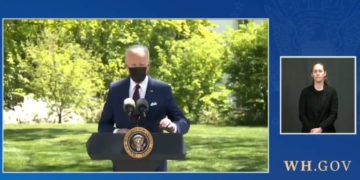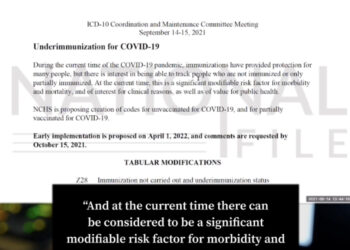Last Updated on February 21, 2022
On Friday, U.S. President Joe Biden announced an extension to the U.S. national emergency declaration, which was enacted in March 2020 due to the COVID-19 pandemic. The emergency declaration will now be extended beyond March 1. President Trump had initially declared a national emergency almost two years ago to free up $50 billion in federal aid. The emergency measures would have been automatically terminated within 90 days of its anniversary unless Biden informed Congress of his decision to renew it.
“There remains a need to continue this national emergency,” Biden said in a letter to Congressional leaders on Friday. The president cited the “deaths of more than 900,000 Americans” and emphasized the need to respond to the pandemic with “the full capacity” of the federal government.
House Republicans had previously called on Biden to end the emergency declaration and to treat COVID-19 as an endemic virus. Government’s response to COVID-19 has led to significant economic and social disruptions,” GOP lawmakers wrote in a letter. “So many Americans have lost their businesses and jobs, far too many children have been left behind in school.”
The GOP Reps. said that a continuation of a COVID-19 emergency declaration would encourage local governments to adopt unnecessary COVID restrictions going forward. “Unfortunately, some state and local governments will continue to impose failed, restrictive policies as long as the federal PHE remains in effect, which sends the message that the country is still in a crisis that requires emergency powers,” the letter read.
Biden’s decision to extend the emergency declaration comes as several pro-lockdown states begin to drop restrictions. While a handful of states dropped extreme COVID restrictions long ago, once heavily restricted states such as New Jersey, California, Connecticut, Delaware, Massachusetts and New York have all recently announced an end to several statewide mask mandates.
U.S. cities that introduced vaccine passports have also rolled back their restrictions. Philadelphia and Seattle recently announced an end to their vaccine passport system, joining Boston, Minneapolis/St. Paul and Washington D.C.
















